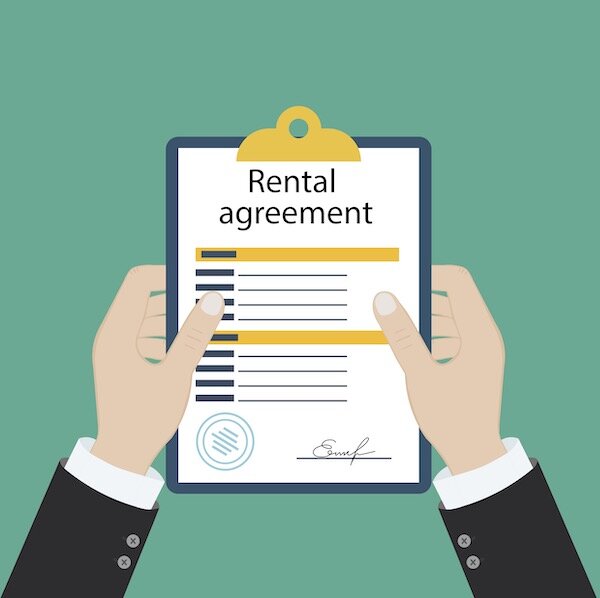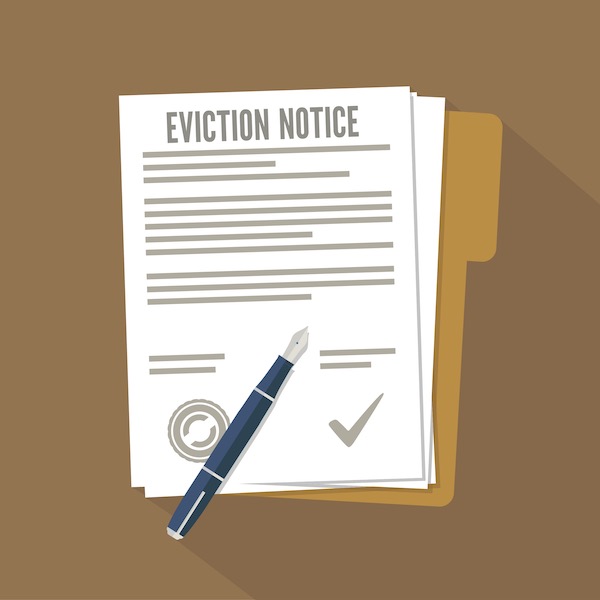Has your tenant stopped paying rent? Situations like this can cause lots of frustration and uncertainty.
In this article, we’ll talk about what options landlords in Columbus, Georgia and the surrounding areas have for handling situations when tenants aren’t paying rent…
Notice: There are current laws in force concerning Covid-19 for tenants, find out more below:

#1. Double-check your lease agreement and payment records
First and foremost, double-check your records and make sure the tenant actually is late paying rent. It’s important to have these things documented on paper, so you can refer to it when you need to.
While the state of Georgia doesn’t legally require a certain grace period to pay rent, most leases give tenants a 5-day period to pay rent after the normal due date. If you’ve double-checked and found that yes, the tenant is late, then you’re bound to the provisions agreed upon in the lease.
Usually the lease will specify a late fee, but if it doesn’t, then you can’t retroactively change your mind and decide to charge one. But remember, a late payment is still a violation of the lease, and this effectively makes it a breach of contract.

#2. Send a late rent notice & try to talk to your tenant in person
The next step would be to send the tenant a late rent notice. It should include a list of all fees that are owed (including late fees).
You should also call your tenant or talk to them in person if possible. Find out why they haven’t paid rent. It’s important to be understanding with your tenant, but you should also be firm about rent being paid on time.
If you find out they are unable to pay due to financial hardship, you could negotiate with them a different payment schedule, or have them do work around the property for a discount. However, just remember if you choose to negotiate with your tenant, and they don’t honor their side of it, it can make you even more frustrated!

#3. Send a Pay or Quit Notice
If nothing has improved after the previous steps, you may consider sending a Pay or Quit notice. This is usually the first step in the eviction process. It shows the tenant you’re serious about pursuing action. It should clearly convey your intent to evict, the amount of money you are owed (including all late fees), and the deadline to pay in full. This is something you may need a lawyer to draft for you.
Although, in Georgia law, there are no specific details as to how and when the tenant must be notified of the eviction proceedings, a Pay or Quit notice is the probably the best way to start in the process. It must be done before the landlord can file an affidavit with the court to begin the eviction proceedings

#4. Hire a Property Manager or Lawyer
If after all of this the situation is getting too much for you to handle, you may also consider hiring a property management company. They are a neutral third party that has effective steps in place for handling unpleasant situations like this.
Alternatively, you could hire a lawyer to provide other notices and formal letters to the tenant, urging them to pay rent or deal with the consequences (being evicted).
Either way, a tenant who stops paying rent puts you in a stressful position as a landlord, so it may be helpful to have some assistance in dealing with this situation professionally and effectively.
However, property managers and lawyers generally charge large fees upfront, take additional commission, and can have communication issues inherent with dealing with them. Sometimes it’s just another kind of hassle.

#5. File for Eviction
Filing for eviction should be your absolute last option – only if you’ve tried everything else and your tenant still refuses to pay rent. You’ll likely need to include the notice to pay or quit that you sent your tenant, along with any other written notices informing your tenant that they owe you rent. In Georgia this is called filing a Dispossessory action. In which the court will issue a summons to the tenant.
The realistic time frame for a court hearing is usually two to six weeks out. If you win the case (and that’s if the tenant doesn’t have a reasonable argument for not paying rent on time) the tenant has 10 days to vacate.
At the time this article was published, the CARES Act Eviction Moratorium is still in place until July 25th. In general terms, because of Covid19, a tenant cannot be evicted because of nonpayment of rent. However, this only applies to “covered properties”. To find out if your property is in this category, you can refer to this link.
In short, the process can be lengthy, complicated, and take up a lot of resources and energy better spent elsewhere, which is why eviction should be your last resort if possible.

If thinking about all these steps has you feeling burned out, worn out, or frustrated….
#6. Sell
Another option is to sell.
If not getting your rent payment is just one of the many frustrations you’re dealing with, then it could be worth considering.
If your tenant(s) aren’t paying rent, then you’re facing the same dilemma that many landlords go through at least once. It’s frustrating and unfortunately, the options can be limited.
Get out of the stress and headaches of trying to manage your rental property.
You don’t have to deal with:
- Having to negotiate, track down, beg and plead with uncooperative non-paying tenants
- The drama, stress, wasted time and energy of tenant evictions
- Even after evicting a tenant, holding out on long vacancies till you’ve gotten it rented again
- Repeatedly having to sink money into repairs with little to no rent payments
At Sell My House Faster Columbus™ we can assist in difficult tenant evictions – no matter where you are in the eviction process – we can help. And if you’re tired of dealing with the headaches of your rental property, we can buy the property from you – helping you get your life back quickly and easily.
If you’re feeling ready to sell your rental property…
Fill out the form to find out if your house qualifies for a cash offer. You can also give us a call at (706) 249-4483 to speak with a solutions expert.
